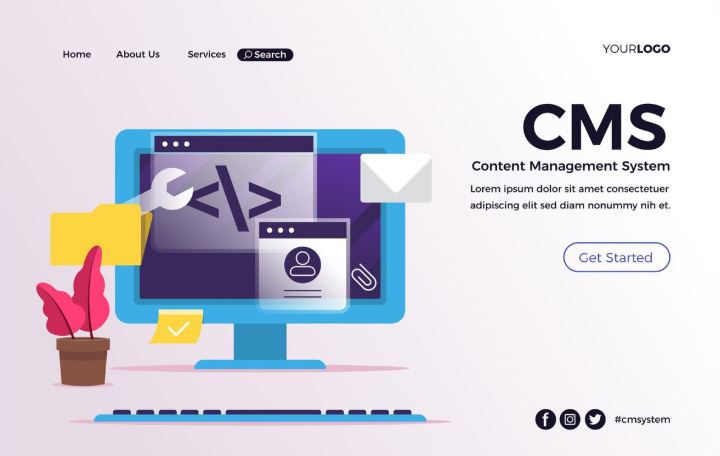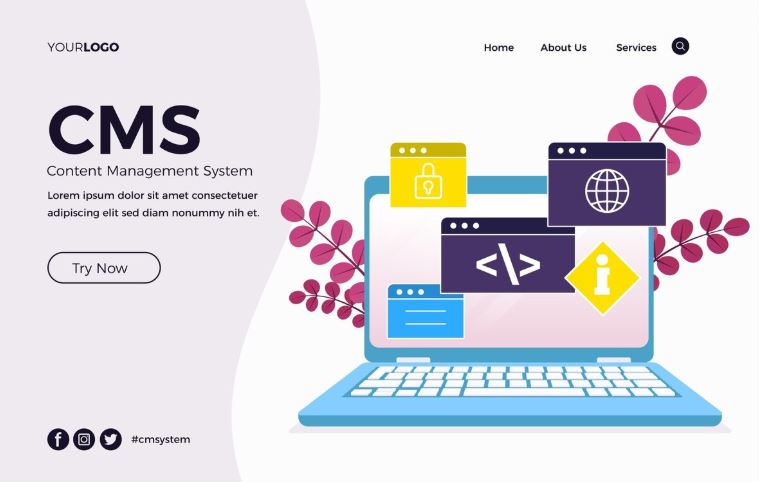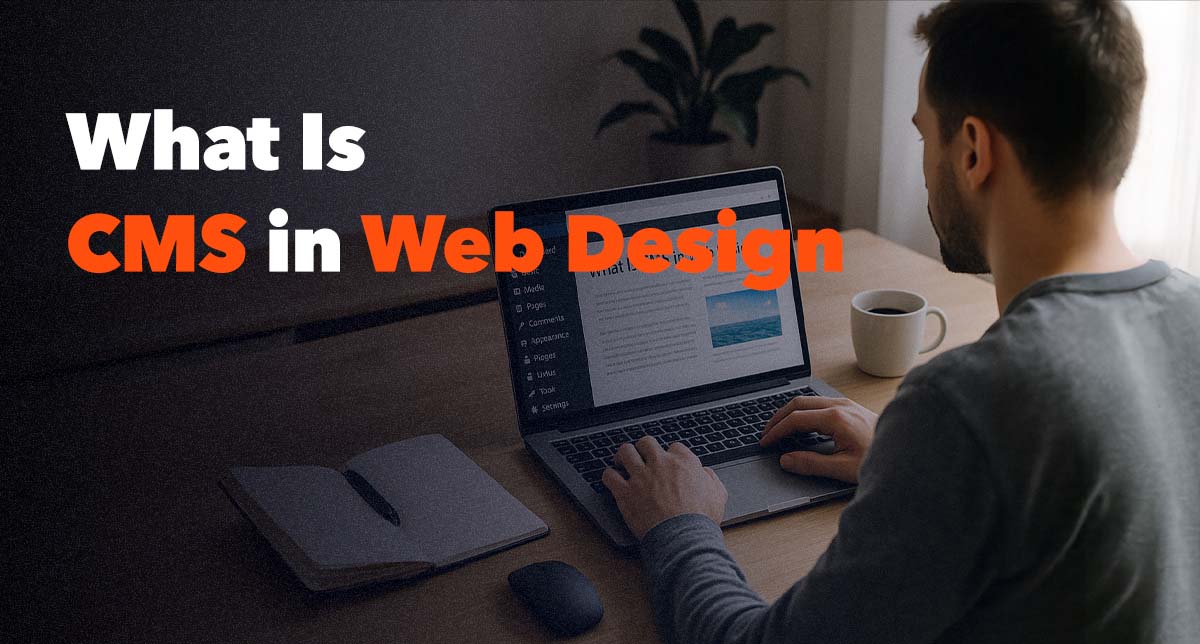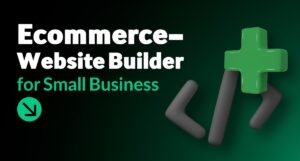Ever thought about how you can build a website without needing any coding skills? That's where a CMS (Content Management System) comes in. It's the perfect tool to help you create and manage your website with ease. Today, millions of websites are powered by popular CMS platforms like WordPress, which are both incredibly powerful and super user-friendly.
At hdm Digital Marketing Agency, we know how important it is to pick the right CMS for your website's success. In this article, we’ll walk you through exactly what a CMS is, the features you should look for, and how to find the perfect one for your needs, whether you're just starting a blog or planning to launch a business website.
What is CMS in Website Design
In website design, a CMS is software that helps you create, edit, and publish content online. It provides a simple interface so you can manage text, images, videos, and pages without touching complex code. This makes it ideal for business owners, bloggers, and organizations that want to focus on their content instead of technical details. A CMS also allows multiple users to work on the same website with different permission levels. For example, an editor can update blog posts while an admin manages the design and structure. This flexibility helps teams work faster and keep their websites updated. With the right CMS, you can launch a professional website that grows with your business.
How Does a CMS Work in Web Design?
A CMS works by separating your content from the design and functionality of your site. You add and update your content through an easy-to-use dashboard, while the system handles the technical parts behind the scenes. Many companies choose CMS platforms when they want scalable, secure, and cost-effective web design services that keep their website looking professional without constant developer support.Step 1: Install the CMS
Most CMS platforms can be installed quickly on a web server. Many hosting providers offer one-click installations for popular systems like WordPress. This means you can start building your site in minutes without complicated setup.Step 2: Choose a Theme or Template
A CMS gives you a variety of ready-made themes. These control your site's design and layout. You can customize colors, fonts, and layouts to match your brand without coding.Step 3: Add Content
Use the CMS editor to create and organize your content. You can add pages, blog posts, images, and videos. The interface is similar to a word processor, making it easy for beginners.Step 4: Install Plugins or Extensions
Plugins add extra features to your site, such as contact forms, SEO tools, or e-commerce functions. Most CMS platforms have thousands of free and paid options to enhance your website.Step 5: Publish and Maintain Your Site
Once your content is ready, you can publish it instantly. The CMS also makes it easy to update pages, fix errors, and keep your site secure with regular updates.Key Features of a Content Management System
A content management system offers powerful tools to create, edit, organize, and publish website content with ease. It gives you control over your site without needing coding skills. Whether you run a small blog or a large online store, a CMS helps you manage everything from one place. Here are some crucial key Features:- Plugin or extension support
- SEO optimization features
- User-friendly dashboard
- Mobile-friendly design
- Content editing tools
- Media management
- Customizable themes
- Multilingual support
- Multi-user access
- Version control
- Security settings
- Regular updates
Benefits of Using a CMS for Website Creation
Using a CMS makes building and managing a website faster, easier, and more affordable. It removes the need for deep technical knowledge and lets you focus on growing your business. With a CMS, you can create a professional website that adapts to your needs over time. Below, we show some important benefits of using a CMS for Website Creation:- Easy to Use for Beginners: Most CMS platforms have simple interfaces. You can add pages, update content, and manage your site with minimal training.
- Cost-Effective: A CMS saves money by reducing the need for constant developer help. You can make most updates yourself without paying for extra services.
- Flexible and Customizable: You can change the look and feel of your site anytime. Themes, plugins, and design options give you endless possibilities.
- SEO-Friendly: Many CMS platforms have built-in SEO tools. They help you optimize titles, descriptions, and URLs for better search engine rankings.
- Supports Team Collaboration: Multiple users can work on the site at the same time. Roles and permissions keep everything organized and secure.
- Scalable for Growth: A CMS can grow with your business. You can start small and add more pages, products, or features as you expand.
Types of CMS Platforms
CMS platforms come in different types, each designed for specific needs. Some focus on ease of use, while others offer advanced customization for developers. When exploring the most popular cms for websites, you will find options like WordPress, Joomla, and Drupal leading the market. Choosing the right type depends on your goals, budget, and technical skills. Types of CMS Platforms includes:- Open-source CMS
- Proprietary CMS
- Cloud-based CMS
- Headless CMS
- E-commerce CMS
- Enterprise CMS
- Static site generators

When Should You Use a CMS in Your Web Design Project?
A CMS is the right choice when you want flexibility, speed, and control over your website. It works very nicely for projects where content changes frequently or needs to be updated by different team members. If you are choosing the right cms, think about your content strategy, budget, and how much customization you need.- When You Need Frequent Content Updates: If your site will have blogs, news, or changing product lists, a CMS makes updates quick and easy. This reduces the time you spend on maintenance.
- When Multiple People Manage the Site: A CMS allows different user roles. Editors, authors, and admins can work together without interfering with each other’s tasks.
- When You Want to Reduce Development Costs: Instead of hiring developers for every change, you can update the site yourself. This saves money in the long run.
- When You Need Scalability: A CMS grows with your needs. You can start small and add features later without rebuilding the site.
- When SEO Is a Priority: Many CMS platforms have SEO tools built in. This helps improve visibility in search results and attracts more visitors.
Is a CMS Right for You? How to Decide
A CMS is a powerful tool for building and managing websites without coding skills. It offers flexibility, scalability, and teamwork features that suit most businesses. Think about your goals, your content update needs, and your budget before making a decision. Comparing different CMS types can also help you find the one that fits your vision best. If you need expert guidance, HDM Agency is here to help. Our UAE branch can walk you through every step of selecting and setting up your CMS. To get started, contact us at +971 56 26 01 368 or fill out our consultation request form.FAQs
- What is the difference between a CMS and a website builder? A CMS offers more flexibility and customization, while website builders are simpler but have fewer options.
- Can I move my website from one CMS to another? Yes, but it requires careful migration to avoid data loss or design issues.
- Do all CMS platforms support e-commerce? No, only some have built-in e-commerce features or plugins for online selling.
- How often should I update my CMS? You should update it whenever new versions are released to keep your site secure.
- Is it possible to use a CMS without hosting? Yes, cloud-based CMS platforms host your site for you, so you don’t need separate hosting.




